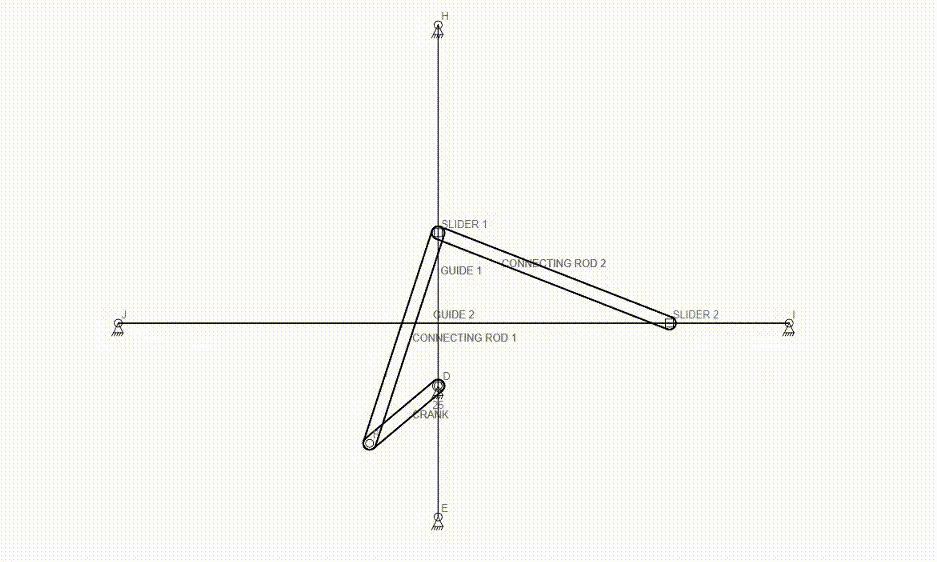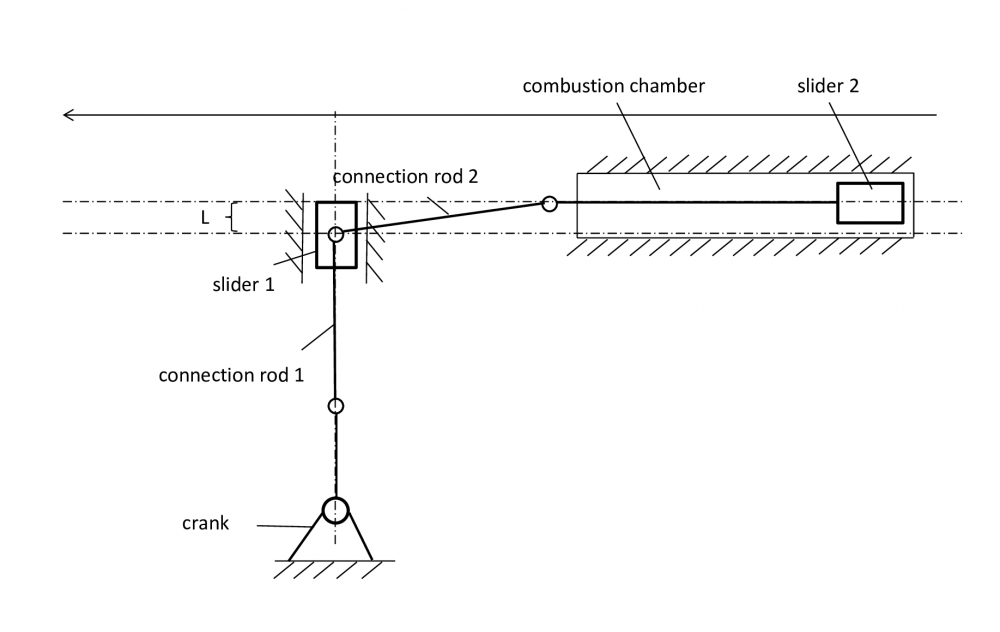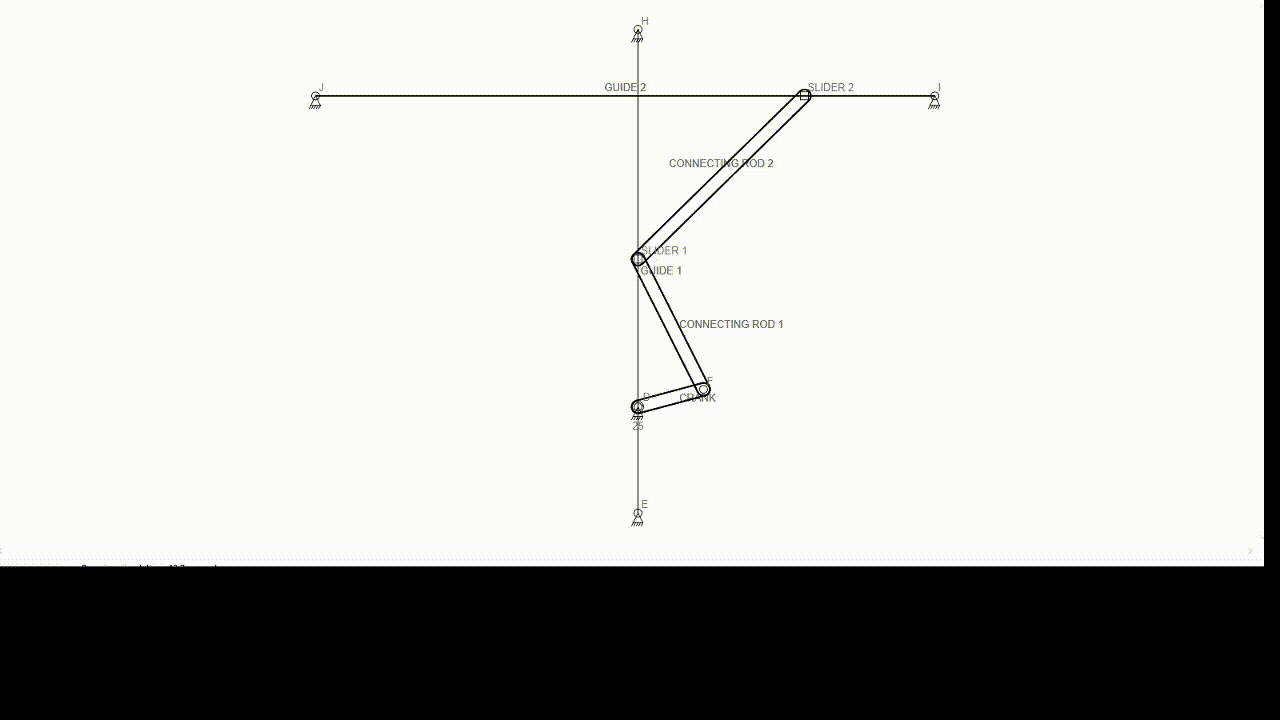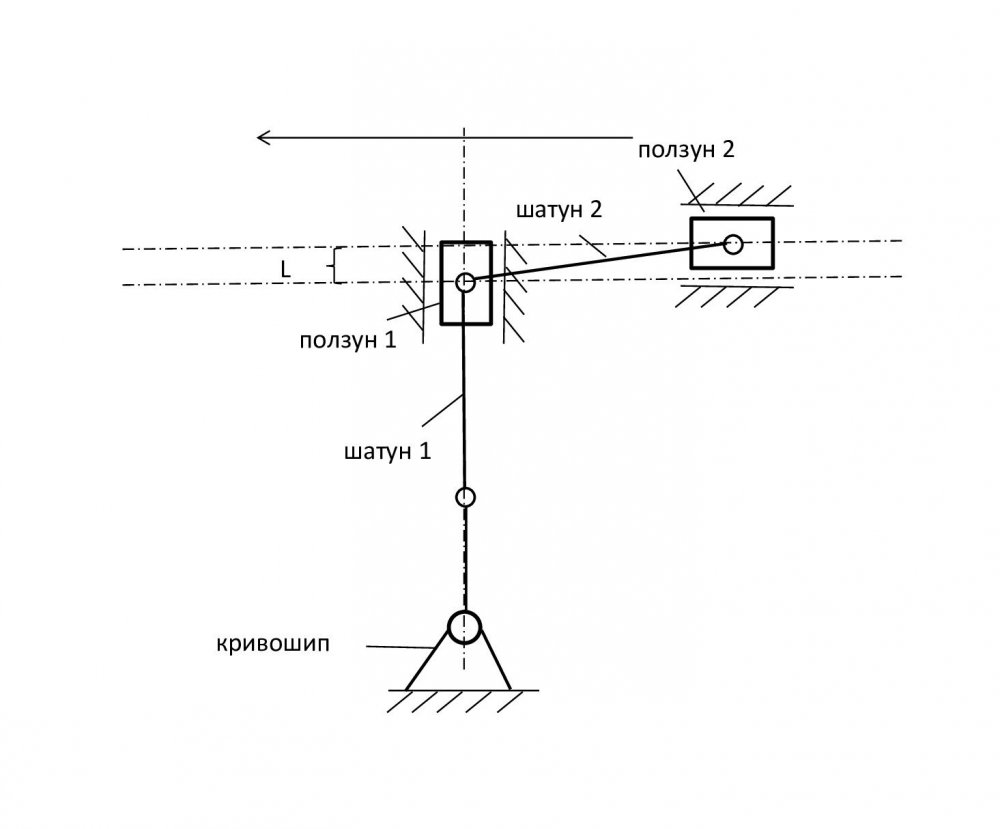

AndreyR29
Members-
Posts
14 -
Joined
-
Last visited
Content Type
Profiles
Forums
Events
Everything posted by AndreyR29
-
According to the law of conservation of energy, it is impossible to achieve an increase in power and speed, since the total amount of all forms of energy remains constant. In the proposed invention, the main effect is to increase the speed of revolutions, but with a decrease in power due to a reduction in the length of the crank with the same stroke of the slider compared to the classic crank-slider mechanism. A possible benefit for researchers and manufacturers of a new product is making a profit from selling a new product that is in demand on the market. The possible effects - increasing the engine speed, saving fuel or using fuel with a lower combustion rate, which will have a positive effect on the environment. Possible applications - low-power engines, piston internal combustion engines for aircraft, electric power generators, including those based on the energy of sea waves. The engine can also be small in size for low-power drones. If we do not take into account the speed factor, then in my opinion this design can be used for low-octane fuel, when there is no explosion in the combustion chamber, but a slower combustion. This can also be used in marine engines to save fuel. If the task is to create a powerful and fast engine with overcoming the speed limit, then, using the proposed mechanism, this can be achieved by increasing the volume of the combustion chamber. The problems that may arise during its creation, such as friction, vibration, weight, dimensions or seals, can be overcome using standard engineering solutions. In addition, in the case of using fuel with lower flammability, in my opinion, it is possible to use parts made of composite materials in the engine, which will reduce the weight of the structure. I am attaching an animation of the mechanism’s operation with a different arrangement of links, as well as a schematic diagram taking into account the combustion chamber. Link to my invention https://patents.google.com/patent/EP3530879B1/en
-
You are absolutely right - any statement requires proof. But I am only putting forward hypotheses. Perhaps an experiment will reveal hidden effects.
-
It is possible that this method can be used to speed up the decay of radioactive elements.
-
Thank you for your comment! To avoid the contact of the connecting rod with the walls of the combustion chamber cylinder, an extension element can be attached to the outside of the piston inside the combustion chamber, which will connect the slider and the connecting rod. That is, in the initial position, the connecting rod is connected to the extension element and is located outside the combustion chamber. In my opinion, the acceleration of revolutions can be useful for unmanned aerial vehicles with piston internal combustion engines to increase their speed of movement. The engine can also be small in size for low-power drones. If we do not take into account the speed factor, then in my opinion this design can be used for low-octane fuel, when there is no explosion in the combustion chamber, but a slower combustion. This can also be used in marine engines to save fuel. Also, this design may be useful for power generators based on the energy of sea waves.
-
I am looking for people who are fluent in this subject and are willing to use my patents to create fuel-efficient and fast engines to meet people's needs and update their product line.
-
In the scotch yoke mechanism, the crank makes half a revolution in one stroke of the slider. In the proposed mechanism, it makes a full revolution in one stroke of the outermost slider in the chain.
-
I propose to use internal combustion engines based on the proposed mechanism primarily in unmanned aerial vehicles.
-
This subject (radioactivity) requires further study.
-
The subject of discussion is the possibility of practical application of the proposed mechanism in internal combustion engines. In existing internal combustion engines, the crankshaft makes half a revolution per stroke of the slider in one direction. In the proposed mechanism, it makes a full revolution per stroke of the outermost slider in the chain in one direction.
-
For example, directing electromagnetic and radioactive radiation in a cross direction and measuring the radioactivity level in the direction of electromagnetic radiation.
-
-
This can be determined experimentally by combining high-power electromagnetic waves and different types of radiation.
-
I propose to combine, using emitters of electromagnetic waves and radiation, electromagnetic waves of different lengths - radio waves and radioactivity. So that there are ripples of radioactivity on an electromagnetic wave of high power and length (like ripples of small waves on a large sea wave). An electromagnetic wave of great length and power (radio wave) acts as a carrier of radioactivity. This can increase the distance of radioactivity and allow you to change the properties of radioactive elements over a long distance. Which can be used to deactivate radioactive waste from a safe distance.
- 15 replies
-
-1
-
To create faster and more economical internal combustion engines, I propose to use my invention - Riyanov double-slider crank mechanism (Two-slider crank mechanism). I received 4 patents in Russia (№ 2634851), China (№ 3349271), Japan (№ 6373516) and the UK (№ 3530879) for my invention, which can be used to create more environmentally friendly and faster engines, generators or in other projects. SUBSTANCE: crank double-slider mechanism includes a crank, two connecting rods and two sliders. The second connecting rod is connected to the first slider at one end, and to the second slider at the other end. The second connecting rod length is equal to the sum of the double crank length and the distance between the connection point of the second connecting rod with the first slider in the initial phase of its movement measured in the direction of the first slider travel and the longitudinal axis of the second slider. EFFECT: ensured full turn of the crank in one stroke of the extreme slider in the chain in one direction. The unconditional effect of the two-slider crank mechanism is overcoming the limitation in the number of revolutions per minute in the internal combustion engine for the same working stroke of the slider, which can be used in internal combustion engines requiring high speed (for example, drones (land, air, water), subcompact cars, motorcycles), as well as in electric generators based on internal combustion engines, wave electric generators. The key predicted effects are a gain in speed, a reduction in fuel consumption, the use of fuel with a lower octane number as a result of an increase in the working stroke of the slider, simplicity of design (gears are not used to double the speed).



.gif.80b18a5b3ef2782e94d68ca1cc4c7078.gif)

